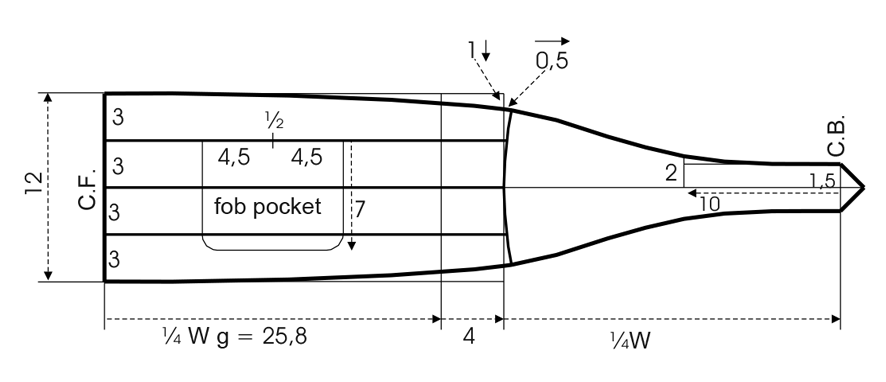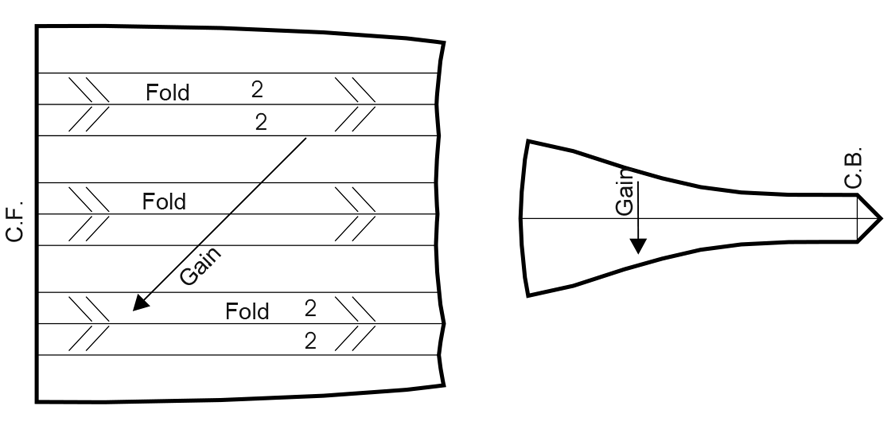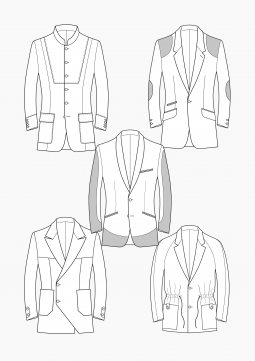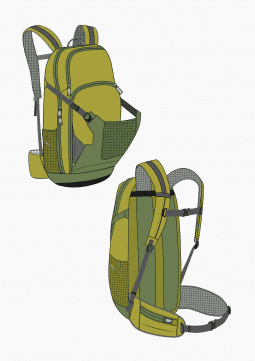Sewing Cummerbund
Deutsch

The cummerbund is a waist sash or waist belt worn around the belly. Traditionally the cummerbund is a part of the elegant men’s wardrobe and is worn instead of a tuxedo vest to a single row tuxedo jacket. It is colour-coordinated with the bow tie and the handkerchief and is part of the correct black tuxedo suit – hence the English term Black Tie for the tuxedo.
How do you wear a cummerbund?
The cummerbund is worn around the waist and covers the waistband. It is usually closed in the back with a metal buckle or mother-of-pearl buttons and adjusted with a wide elastic band. The folds of the cummerbund always point upwards so that there is room for cards, tickets or banknotes.
When do I wear the cummerbund?
The cummerbund is often worn at weddings. The cummerbund goes especially well with wedding suits and can be matched in colour to the bride’s accessories. The chic belly band can also be used for elegant garden parties, captain dinners on cruises and other special festivities.
Construction instructions for patterns of tie and bow tie as well as binding and folding instructions can be found in our > free download.
Why is it called cummerbund?
The cummerbund was probably brought to Europe by British soldiers from India in the middle of the 19th century. The sash from India replaced the vest under the jacket for officers and was a pleasant alternative in the tropical climate.
The silk waistband of the Indians, the so-called kamarband, (hip belt) then became the English word cummerbund (also cumberbund) and in German Kummerbund.
Pattern construction cummerbund

- Construct a rectangle 12 cm wide and 1/4 Wg + 4 cm long. At a distance of 3 cm indicate three folding positions. To the right, taper the upper and lower edges by 1 cm each and place them 0.5 cm outwards. From the rectangle set 1/4 Wg to the rear, indicate the width of the back strap and mark the course to the front as shown in the drawing.

- Copy out the front and back sections. Cut open all three pleats in the front part and lock in parallel 4 cm of pleat content each. The thread line in the back part runs vertically, in the front part diagonally, so that a beautiful fall of the folds is reached.
You can find many more cutting instructions and finished patterns for sewing in our online shop.




